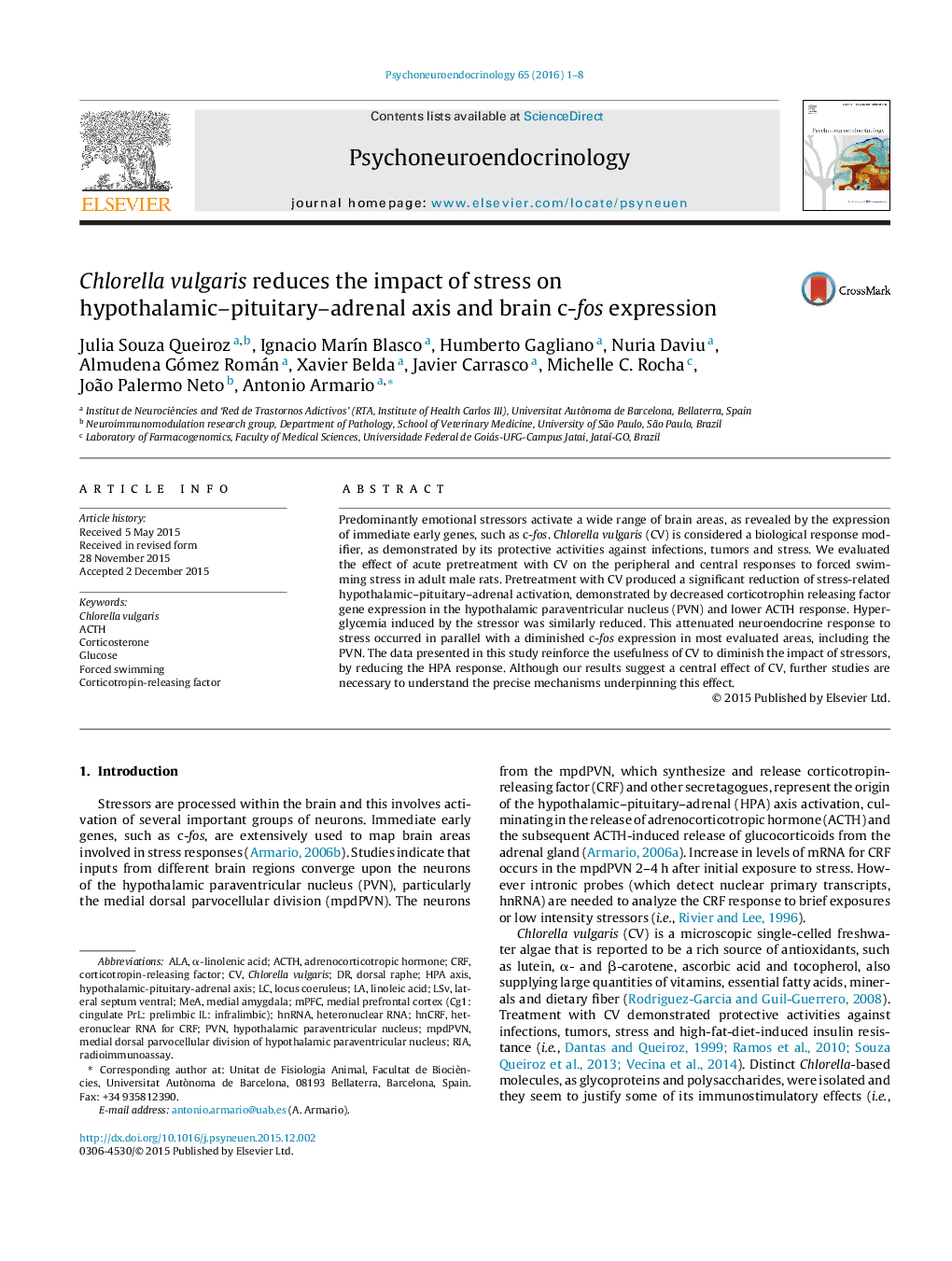| Article ID | Journal | Published Year | Pages | File Type |
|---|---|---|---|---|
| 6818313 | Psychoneuroendocrinology | 2016 | 8 Pages |
Abstract
Predominantly emotional stressors activate a wide range of brain areas, as revealed by the expression of immediate early genes, such as c-fos. Chlorella vulgaris (CV) is considered a biological response modifier, as demonstrated by its protective activities against infections, tumors and stress. We evaluated the effect of acute pretreatment with CV on the peripheral and central responses to forced swimming stress in adult male rats. Pretreatment with CV produced a significant reduction of stress-related hypothalamic-pituitary-adrenal activation, demonstrated by decreased corticotrophin releasing factor gene expression in the hypothalamic paraventricular nucleus (PVN) and lower ACTH response. Hyperglycemia induced by the stressor was similarly reduced. This attenuated neuroendocrine response to stress occurred in parallel with a diminished c-fos expression in most evaluated areas, including the PVN. The data presented in this study reinforce the usefulness of CV to diminish the impact of stressors, by reducing the HPA response. Although our results suggest a central effect of CV, further studies are necessary to understand the precise mechanisms underpinning this effect.
Keywords
MEAACTHLSVHeteronuclear RNAALACRFhnRNAMPFCRIAmedial amygdalaα-linolenic acidLinoleic acidradioimmunoassayDorsal raphé Forced swimmingcorticotropin-releasing factorlocus coeruleusPVNHypothalamic-pituitary-adrenal axisHPA axisHypothalamic paraventricular nucleusadrenocorticotropic hormoneChlorella vulgarisCorticosteroneGlucose
Related Topics
Life Sciences
Biochemistry, Genetics and Molecular Biology
Endocrinology
Authors
Julia Souza Queiroz, Ignacio MarÃn Blasco, Humberto Gagliano, Nuria Daviu, Almudena Gómez Román, Xavier Belda, Javier Carrasco, Michelle C. Rocha, João Palermo Neto, Antonio Armario,
